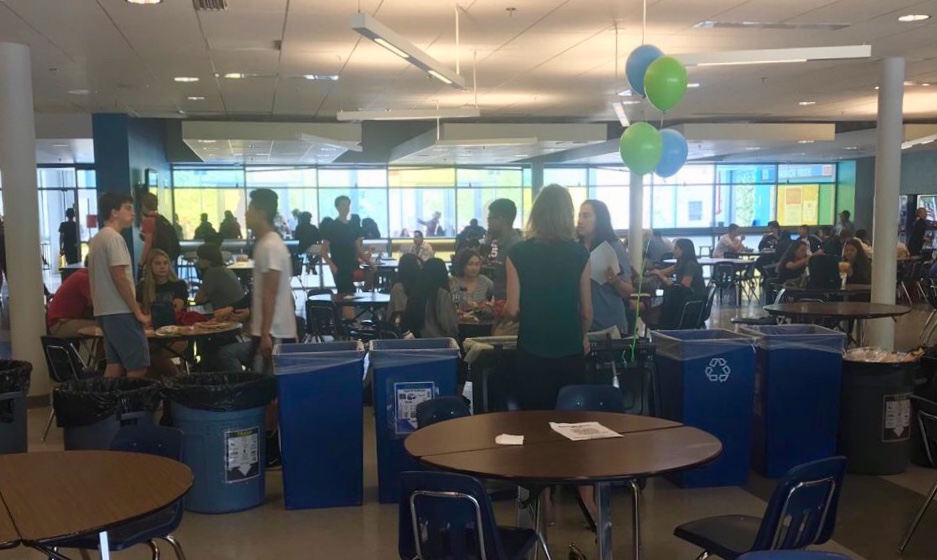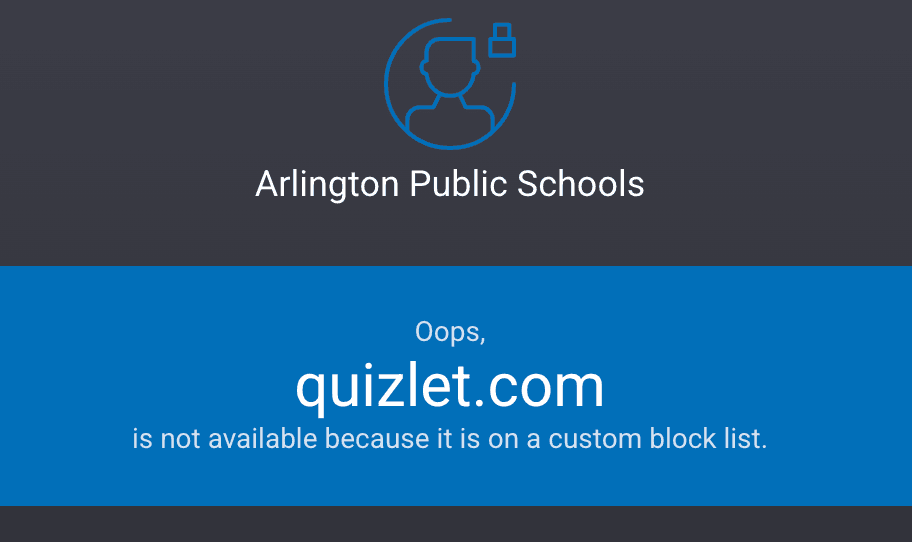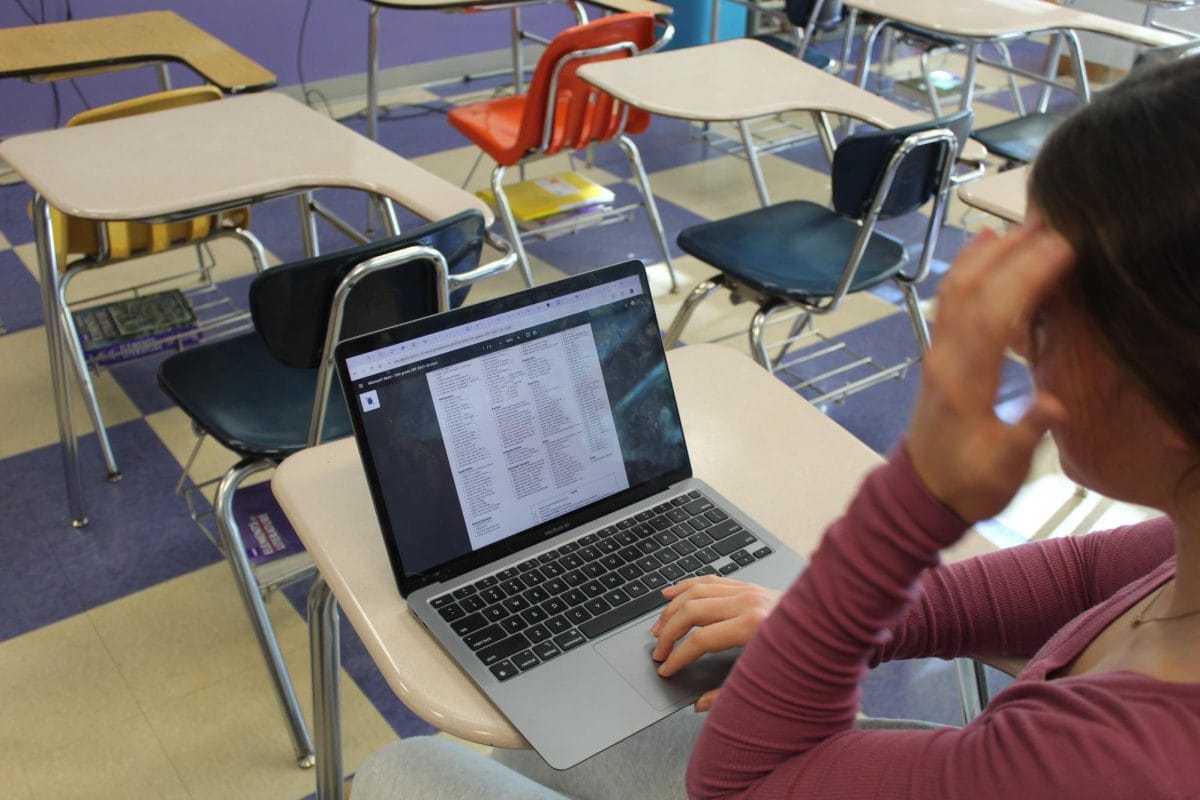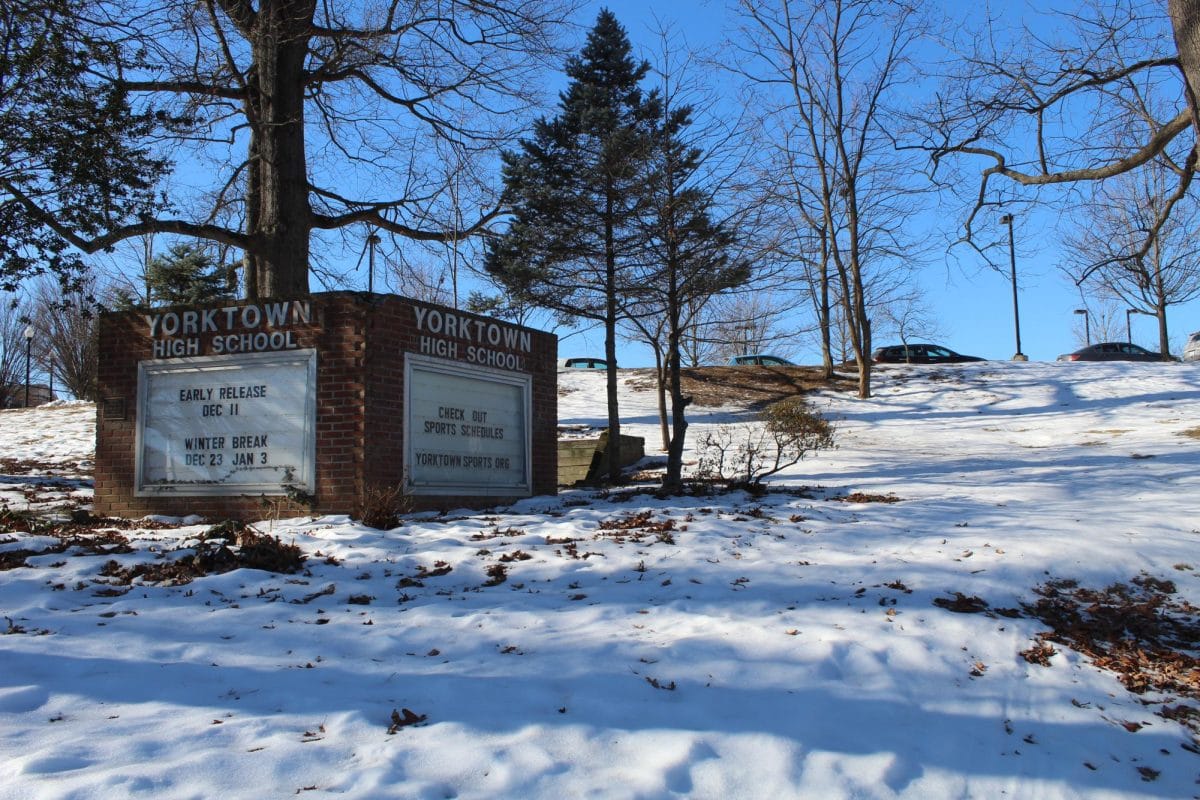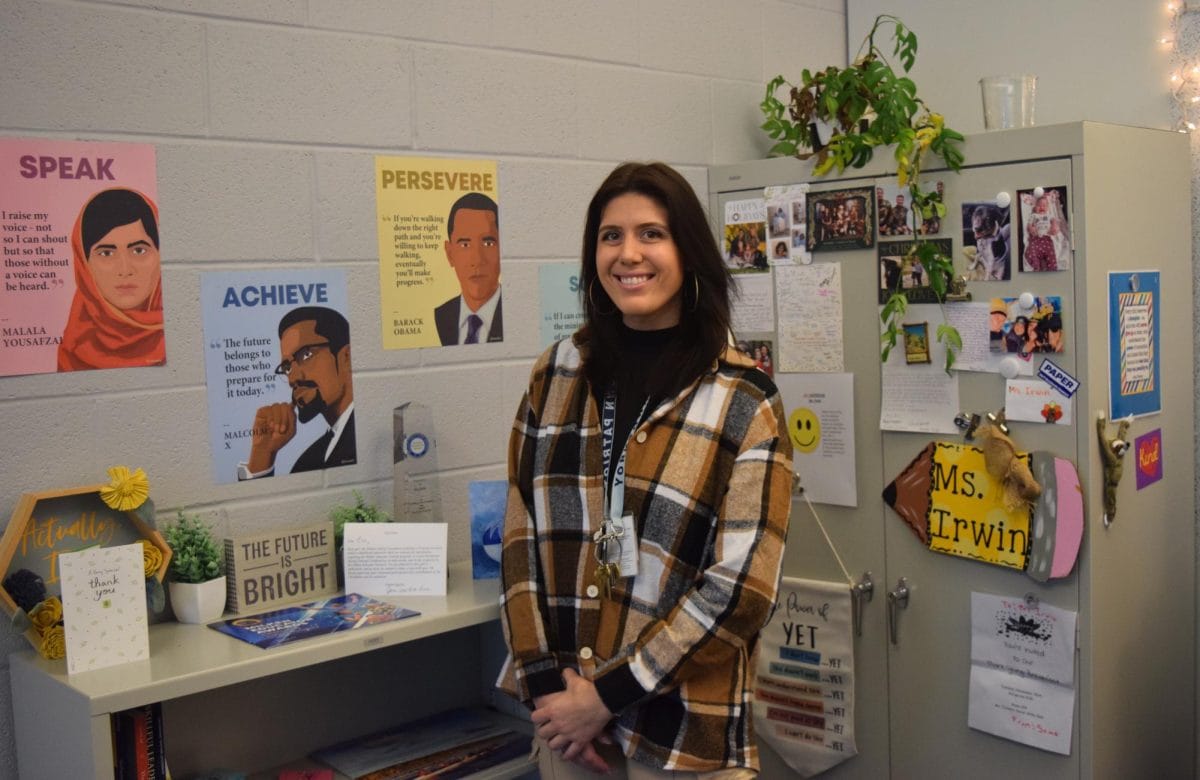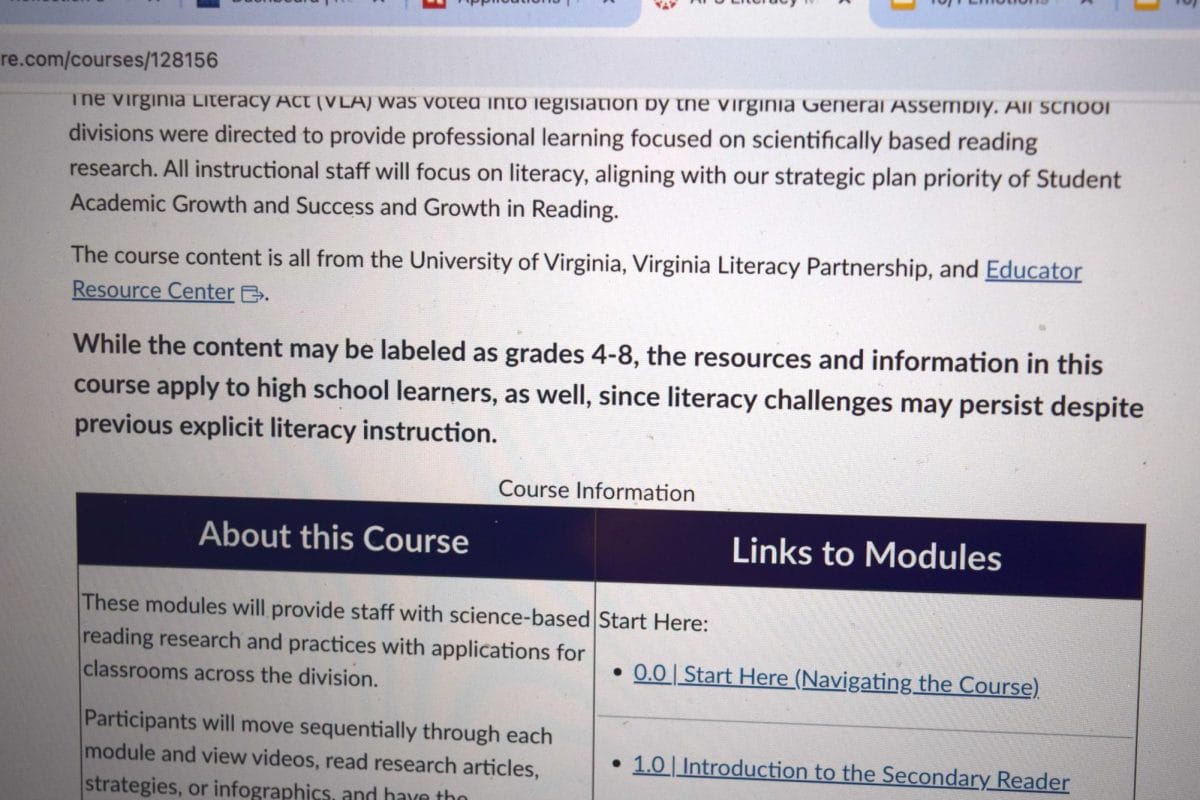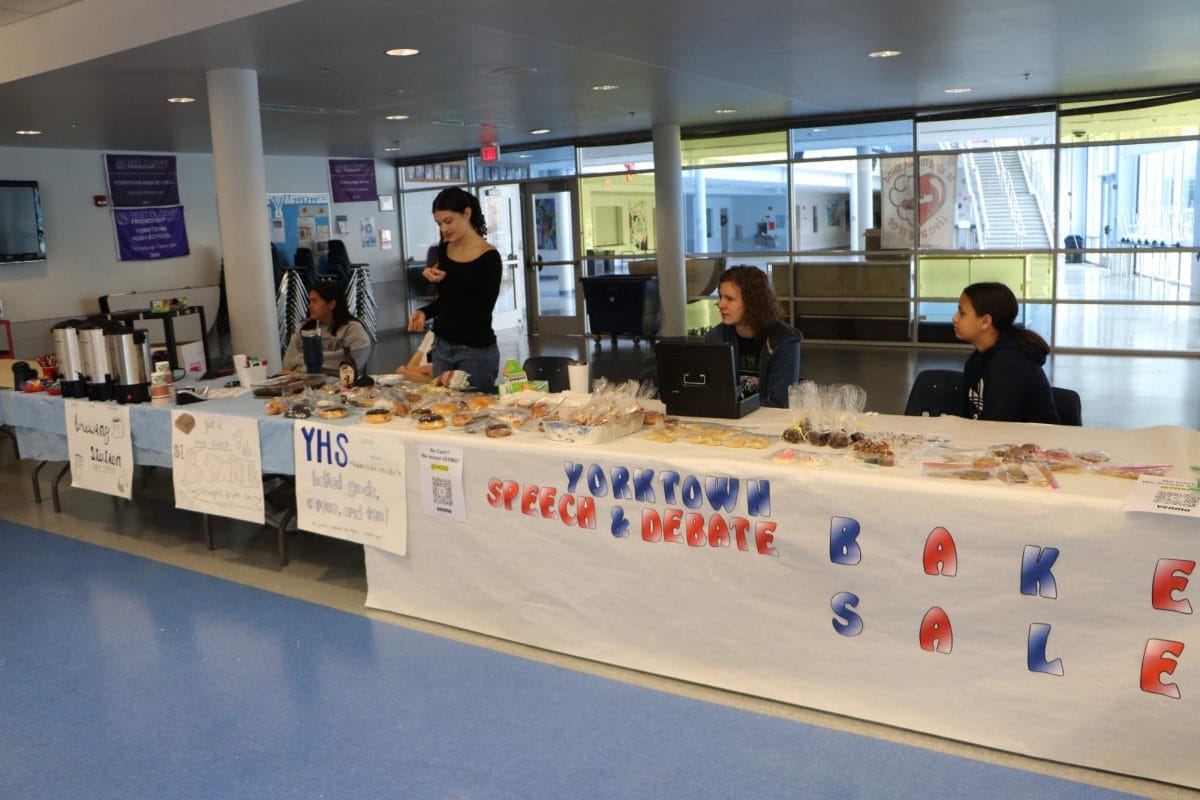Monday, April 22, was Earth Day, the birthday of the only planet (that we know of), that has the conditions necessary to harbor life. It is the perfect mix of oceans and land, warmth and coolness. It provides us with food, water, shelter and the ever so important oxygen that we breathe. However, as the human population continues to explode, the more the risk of harming this unique planet increases.
Here at Yorktown, there is a club that specializes in tackling issues that relate to climate change and helping the earth, called the Environmental Club. Sponsored by teacher Ms. Ratcliffe, last year the club started a new, school-wide, recycling program. This year, they chose to take the next step in their goal of bettering our waste management, by starting a compost program.
The club has worked tirelessly this year to raise money for the program, running numerous fundraisers that they have used to help pay for the services of Compost Crew, an organization that collects compost.
According to co-president of the club, Rose Duane, the idea for a Yorktown composting initiative was sparked by last year’s recycling project, and their goal of reducing the amount of waste that pours in to landfills.
“We were just trying to think of ways that Yorktown can reduce its carbon footprint….. And we figured, what’s the next step, and that was composting for us,” Duane said.
Compost is defined as a mixture of various decaying organic substances used for fertilizing soil. The idea behind composting is that when organic matter, like food, is put back in the ground, it will decompose and help to fertilize the soil. However, it also has effects that can help to reduce waste, and its effect on climate change.
“When food gets thrown away into a landfill, it sits there for a very long time, it doesn’t get to break down naturally, and thus it releases methane gas and other greenhouse gasses…. and it is really one of the biggest contributors to why climate change is happening.” Duane Said.
She also explained that composting allows for this waste to break down naturally, which reduces the release of greenhouse gasses in to the environment.
Every Friday, the Environmental Club will have special composting bins, along with trash cans and recycling bins, set out in the cafeteria during all lunches. Students will be expected to throw away their trash according to the regulations set out by the club.
These rules may seem complicated at first, but the Environmental Club understands this, and will provide volunteers with knowledge of the system to help students figure out what can be composted, and what needs to be thrown in the trash.
“Anything that can be eaten [can be composted], vegetables, fruit, sugary snacks… basically anything that can decompose,” Duane said.
Even the trays in the lunch line, which are biodegradable, can be composted. Students in the past have been told to put their trays in the recycling bins, but most trays still end up in the trash. This is because the confusion over how much food (specifically pasta sauce) is allowed to be caked on the tray when it is recycled. The composting program will give students a less confusing way to not throw their trays in the garbage, because it does not matter if there is food on it.
Duane hopes student participation in this initiative will not only lead to a healthier, more eco-friendly school environment, but to a group of young people who have had exposure to the simple things that they can do to help the planet.
“I think composting will definitely help inspire students to care about the planet, care about our neighborhoods….. Because it is something that everyone should care about,” Duane said.
It may seem like a clichéd statement, but in this fight against ourselves and climate change, every little bit matters. It may start with a high school club that is trying to make a difference, but the hope is that it does not stop there. Efforts like the Environmental Club’s composting program do make a difference, and Duane and the rest of the club hope that next time you go to throw away your trash, you think about where that food goes.





































